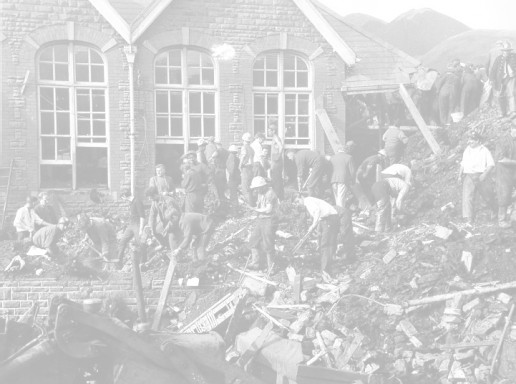Environmental Performance
Do you consider Environmental Management as vital as your Health and Safety Management? If not, you could be throwing money into the bin, or allowing materials to needlessly evaporate up the stacks. You may even find yourself getting attention from the regulators due to poor management of your environmental aspects?
Many companies underestimate the many benefits that can be achieved through good environmental performance. Good environmental performance leads to a leaner operation, better legal compliance and financial savings.
Our Environmental Consultant & Trainer who is a Full IEMA Member has implemented award winning Environmental Management Systems. Delivered training that is designed to captivate and interact with the delegates. Atlas HSE can review your waste streams, environmental managerial controls, material usages, emergency response and spill containment and educate the workforce. You may be looking for a complete EMS (Environmental Management System) implementation such as ISO14001 or simply looking to re-energise your current EMS. We can support and guide you on your environmental performance journey!
Drop us an email at info@atlas-hse.com to arrange your free non-obligatory discussion with our Environmental Consultant.
Obsolescence & REACH Management
Obsolescence can cripple processes and even businesses if it is not controlled and managed effectively. As we approach the REACH (Registration, Evaluation, Authorisation of Chemicals) 2020 deadline, the risk of obsolescence increases. Has your business taken the necessary steps to protect sustainability and secure future supplies and mitigate business risks?
Obsolescence usually occurs due to suppliers taking their products of the market. Other reasons may include adapting the product in some way which renders it useless to certain processes.
Having a firm understanding of Obsolescence and REACH and adopting a systematic management approach will allow companies to proactively identify the “at risk” materials. Materials can include spare parts, chemicals, software & hardware, and even bespoke processes.
Legislation such as REACH has and will further increase the risk of obsolescence as suppliers decide how to remove products off the market due to registration costs.
Visit http://www.hse.gov.uk/reach/ for more information on REACH.
If you require support in regards to managing your obsolescence risks and REACH compliance, then why not drop us an email and see how we can support you!
Online Training
Over recent months Atlas HSE Ltd has been working hard to expand on its training services. This was to ensure that we could offer a wider range of products. We evaluated our current services, which was primarily “work site & classroom” based and decided that we must provide more options for our customers.
It is with great pleasure that we can now announce that our web based eLearning suite is now immediately available. Our non-vocational courses can be booked direct through the website by clicking on the “Book Now” icon.
If you are looking for a more vocational qualification such as IOSH, NEBOSH or NVQ then please contact us so that we can discuss your needs and get you enrolled on the most suitable course.
If you have any questions regarding our training services please do not hesitate in contacting us at info@atlas-hse.com as we may be able to save you even more money through a business package.
We look forward to hearing from you!
Chronic Normalisation
You have probably heard of “Chronic Unease” but have you ever heard of “Chronic Normalisation”? If we break these two words down and look at the individual definitions, it should speak for itself. “Chronic” being the (continuation) long term effect and “Normalisation” defined in sociology is a set of actions or ideas considered normal and accepted.
- When you consider the Space Challenger disaster in 1986, they accepted the risk of launching the space shuttle despite warnings from engineers regarding a safety critical O-ring possibly having a degraded performance in lower temperatures. NASA’s Teacher in Space Project - Christa McAuliffe’s parents were watching the launch when the disaster unfolded.
- In November 1984 – most of the safety systems at the Union Carbide Plant in Bhopal were not functioning as they should. Valves and pipework were in poor condition, storage tanks contained materials well over the limits that procedure’s permitted. These failures resulted in a runaway reaction which created a cloud so deadly that this would become the worst industrial disaster.
Eventually, the accumulation of these warning signals with the absence of “action” resulted in two major disasters. These warning indicators did not come to the surface in one day; they are accepted over time (chronic) and when enough time passes, we become blind to these discrepancies, they become the norm (normalisation)! These two tragedies show that over time attitudes, degraded systems, poor integrity, and ignorance to procedure – ultimately resulted in catastrophe. Acceptance of a lower standard should not be an option; in fact, opportunities should be used to verify that this is not the case - and that standards are duly and morally acceptable!
There are many opportunities to run mini “back to basic” campaigns, but we generally do not take advantage of these. A good example would be the ORA (Operational Risk Assessment) – a risk assessment that should prompt a team based discussion, inspection of Bow Ties, Performance Standards etc. which results in a quantified assessment of the degraded element. Instead of just mitigating the issue, why not do a gap analysis, rather than revert back to the normalised standard look for opportunities to improve on it. ORA’s by their nature are usually a reactive tool, but there is nothing wrong in benefiting proactively from the process!
High Reliability Organisations operate with a principle known as “Preoccupied with Failure”; if this mind-set is embedded then it is very difficult for chronic normalisation to exist.
Karl Weick, Co Author of “Managing the Unexpected”.
“The event can in some ways be considered as an abrupt and brutal audit: at a movement’s notice, everything that was left unprepared becomes a complex problem, and every weakness comes rushing to the forefront.”
Thanks for reading! Kevin McAughrey BSc (Hons)
An Interesting Day
The 21st October was quite an interesting day, in the second “Back to the Future” movie, Marty McFly travelled in his DeLorean time machine to the future, the 21st October 2015. In the build up to this I have seen many articles and TV programmes analysing what the movie (released 1989) successfully got right in their predictions of the future.
As a child I loved these films but on this day I found myself reflecting. Not on what we got right with the prediction of a movie but how we got it so wrong (on this day) in prevention. You see it was yesterday in 1966 that tragedy would unfold, early morning, on the small town of Aberfan. Water had built up in the accumulated rock and shale debris – which triggered a landslide. An estimated 40,000 cubic metres slid down and engulfed the Pantglas Junior School killing 116 children and 28 adults.
Following the disaster the National Coal Board was accused of gross negligence. Over half a century had seen the excavation of millions of tons of earth and stone. Huge amounts of spoil had accumulated on the mountain side and despite warnings and concerns – the company did nothing, they ignored the Local Authorities advice. Failings in planning and culture ultimately led to this disaster – they loaded spoil onto an unstable location and despite knowing this, management ignored the fact.
Changes that followed the disaster included legislative rewrites and extensions on controls and requirements. However, this does not dilute how this particular disaster makes me feel, possibly as I associate to it more as a father rather than a safety professional. Many children and adults lost their lives needlessly due to negligence and lack of care. They had the opportunity to take heed of the warnings (occurring changes) and make proactive changes – but chose not too!
Change is not static, we should ensure we control change to a positive outcome, because if we don’t - change will occur outside of our control. Changes in environmental conditions were not controlled at Aberfan – and attitudes only contributed. If you consider bad practises creeping in, this is a cultural change. If corrosion forms on structures this is an integrity change. As we implement check lists, new procedures we are instigating managerial changes – it is important to consider the cause and effect of any changes. Evolution is the key to a safe operation, devolution is not an option.
We do not have the ability to time travel like Marty McFly, but it is in our power to control our future proactively. We cannot change the past but as a minimum we should learn from those mistakes.





